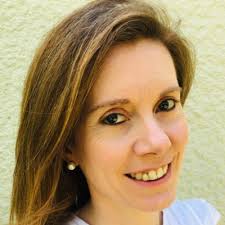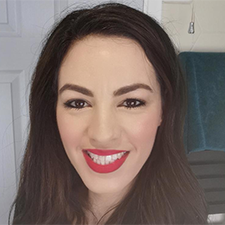We need to ensure that in our response to covid-19, the rights of those with hearing loss are not forgotten, say Helen Grote and Fizz Izagaren
We are two deaf doctors, who rely on lipreading in our daily work. The debates around personal protective equipment (PPE) during this coronavirus outbreak have revolved around adequate supplies, and whether the fit testing and face masks supplied by hospital trusts provide adequate protection. The communication needs of those who rely on lipreading have been completely overlooked.
At present, we have found only one company in the world that produces transparent face masks approved for use in healthcare settings. These are currently unavailable, and despite involving our respective hospital trusts, the British Medical Association, and NHS England, there are no transparent masks available for use in healthcare settings in the UK at all.
On a practical level, this means participating in discussions on ward rounds is all but impossible—aside from reading entries in patient notes, and the pre-and post-round discussions in non-clinical settings where masks can be removed. In a medical emergency that requires PPE to be worn, and where safe and effective communication is essential, this difficulty is a substantial concern.
Similarly, the effect on patients has been hugely overlooked. Around one in six people in the UK live with hearing loss—and in people over the age of 70 an estimated 71% have hearing loss. The use of masks has made communication with healthcare professionals harder for many of these patients, and yet the General Medical Council states communication “in a way they [patients] can understand” is vital for informed consent, patient care, and safety. Face coverings do not just affect those who lipread; studies have shown that 60-70% of communication is based on non-verbal cues from lip patterns and facial expression, which are essential for anyone with communication difficulties.
While we recognise that masks and non-medical face coverings do reduce viral transmission from coughs and sneezes, the attitude of policymakers and the public towards the D/deaf community has been hugely disappointing.
Politicians including Sadiq Khan and high profile doctors such as Twitter’s Dr Ellie and Trisha Greenhalgh are now supporting campaigns such as #MasksforAll. In an editorial in The BMJ Greenhalgh and colleagues concluded that despite limited evidence, masks “could have a substantial impact on transmission with a relatively small impact on social and economic life.”
However, the negative impact of #MasksforAll on the social and communication needs of the D/deaf community is substantial. It risks those with hearing loss becoming increasingly isolated, with all the detrimental mental health consequences that can ensue from that.
Those advocating for the mass wearing of masks have completely overlooked its impact on the D/deaf community. Or, in the rare instances that the issue has been addressed, it is dismissed as a short term concession that the D/deaf community could make for the greater good of society. Yet the time needed to produce a safe, effective vaccine against covid-19, together with the acknowledgement of England’s chief medical officer that social distancing measures will need to be in place for “really quite a long period of time,” makes it likely that the wearing of masks will become normalised in the longer term.
In a society where manufacturers rushed to produce ventilators, and generous communities produced scrubs and home-made visors, no one, despite our calls for help, has been able to produce a suitable transparent mask in this time frame. Although one thoughtful US healthcare student has produced a pattern for a home-made transparent mask, these are not classified as suitable for use in a healthcare setting, where type IIR or FFP3 masks are required.
We, as a society and as a body of healthcare professionals, need to ensure that in our response to covid-19, the rights of those with hearing loss are not forgotten.
We would encourage all healthcare professionals to carefully consider the communication needs of their D/deaf patients. Apps, such as Google’s Live Transcribe, may help to decipher speech from behind a mask in quiet settings. Clear signs and pictures can also assist with communication; resources such as Cardmedic, a digital package of communication flashcards, can be helpful in some instances. However, written notes are not always an effective means of communication for those whose first language is British Sign Language, as the grammatical structure is entirely different.
The lack of support in this area has been one of the hardest challenges we have faced at work during the coronavirus pandemic. It leaves us and our D/deaf patients feeling isolated and ignored. Reading articles and tweets about the importance of masks, with no consideration of the impact on the D/deaf, leads us to conclude that policymakers and academics have seemingly forgotten about the importance of equality impact assessments in this area.
We want—and need—access to suitable transparent masks in healthcare settings, and are keen to work in collaboration with manufacturers to enable this to happen. Most of all, please advocate on all our behalf. As we have heard often, tackling this current pandemic together “is a marathon, not a sprint.” A focus on ensuring access to transparent masks, and enabling safe, effective communication for healthcare workers and patients with hearing loss will be a legacy for years to come.
 Helen Grote is a neurology registrar at Chelsea and Westminster Healthcare Hospital, currently redeployed to the medical rota during the coronavirus pandemic. Twitter @helengrote
Helen Grote is a neurology registrar at Chelsea and Westminster Healthcare Hospital, currently redeployed to the medical rota during the coronavirus pandemic. Twitter @helengrote
Competing interests: I have read and understood BMJ policy on declaration of interests and declare the following interests: none
 Fizz Izagaren is a paediatric registrar at Frimley Park Hospital, Surrey. She is currently working with a product designer to develop and trial clear masks, but ultimately wants this to be a national collaboration effort. Twitter @DocFizzabella
Fizz Izagaren is a paediatric registrar at Frimley Park Hospital, Surrey. She is currently working with a product designer to develop and trial clear masks, but ultimately wants this to be a national collaboration effort. Twitter @DocFizzabella
Competing interests: I have read and understood BMJ policy on declaration of interests and declare the following interests: none
